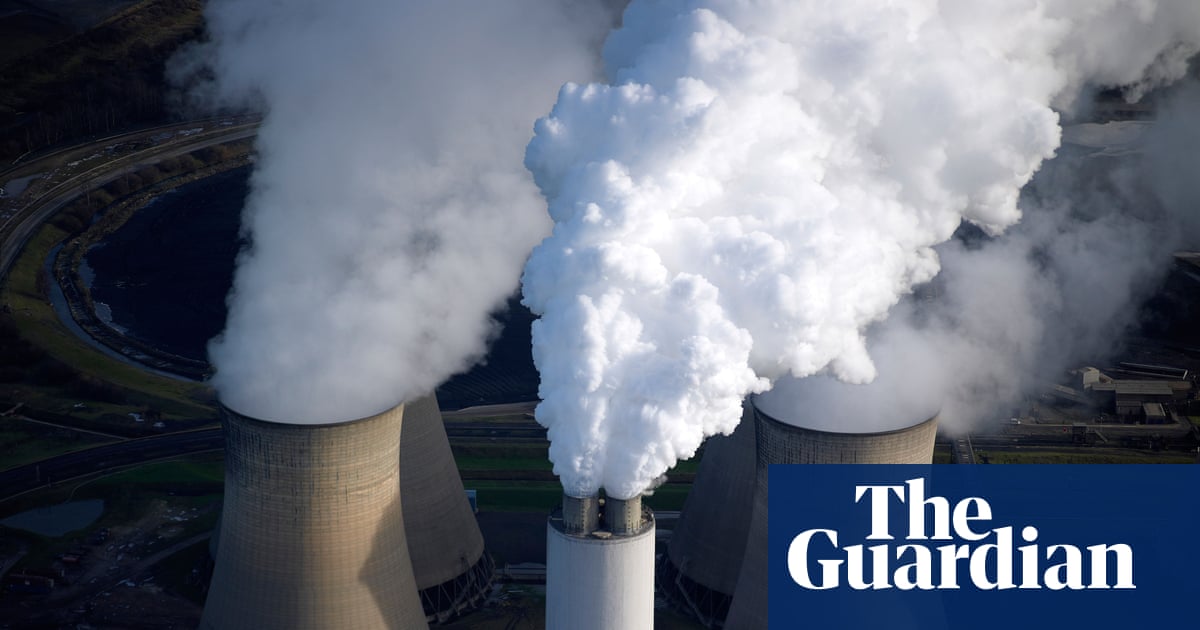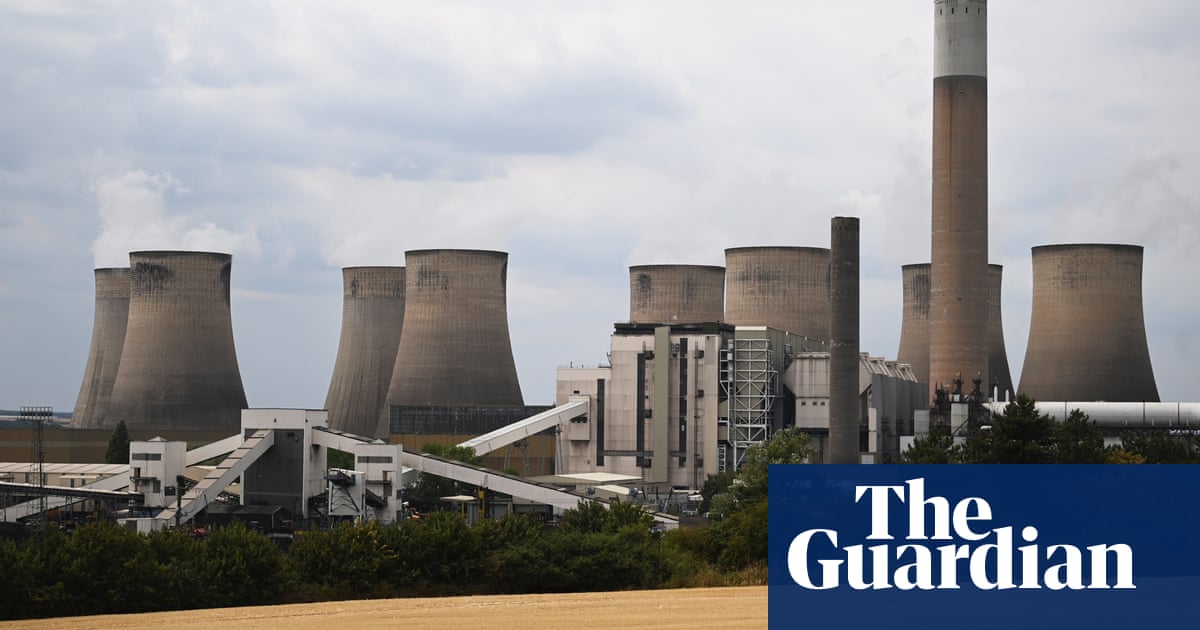
National Grid has broken a 46-day run in which coal has not been used to generate electricity in Britain in order to meet extra demand for air conditioning as the country swelters in hot weather.
The grid’s electricity system operator (ESO) asked Uniper, the owner of Ratcliffe-on-Soar power station in Nottinghamshire, to start producing power from the coal-fired plant, prompting criticism from green campaigners.
Temperatures broke 30C for the first time this year over the weekend and meteorologists forecast the chance of Britain experiencing a hot summer was 45% – 2.3 times the typical figure.
The hot weather is expected to push up demand for power, as households and businesses switch on air conditioning units. Air conditioning accounts for about a fifth of the total electricity used in buildings around the world.
One unit at the Ratcliffe plant was brought into action on Monday morning, with a second unit warmed up to cover the evening peak in power demand.
The consultancy LCP Delta said wind generation was low on Monday and planned maintenance at the Torness nuclear power station on the east coast of Scotland, which began on Sunday night, had reduced available generation by a further 1.3 gigawatts.
Last week, a fault was found on the 1,400-megawatt North Sea Link interconnector that carries power between Norway and the UK, cutting electricity supplies. The power flowing through the 450-mile subsea cable has been reduced by half while the fault, discovered at an onshore facility in Norway, is repaired.
The decision to turn to the fossil fuel angered green campaigners. Ami McCarthy, Greenpeace UK’s political campaigner, said: “It is a sign of failure that the National Grid is turning to one of the most polluting forms of power generation to deal with a summer heatwave that we know has been made worse because of climate change.”
She added: “The government must get to work and upgrade our energy grid. In summer, we should be turning to solar power, yet we currently have renewable energy going to waste because our grid cannot transmit the power, and hundreds of renewables projects which are on hold because they can’t get connected.”
National Grid has previously advised consumers to improve the energy efficiency of air conditioning by changing or cleaning the machine’s reusable filter, closing windows and doors and by shutting curtains to block the sun’s light and heat coming into the home.
Ratcliffe-on-Soar was among the coal-fired power stations put on standby to provide extra power by the ESO over the winter amid concerns that a cold snap and a reduction in gas from Russia to Europe could lead to rolling blackouts.
In the event, the plants were frequently warmed but only called into action in March, when EDF’s West Burton A plant in Nottinghamshire began producing power before the coldest night of the year.
Jess Ralston, the head of energy at the Energy and Climate Intelligence Unit, said: “Coal is playing a bit-part role in the electricity grid, and both here and in Europe its use is plummeting, partly because of its high emissions.
“With more offshore wind, and solar particularly in the summertime, coal’s back-up role will become redundant with smarter markets combined with batteries and other storage technologies.”
The life of Ratcliffe’s fourth unit was extended for two years beyond its planned closure date last year, with all units now due to shut by September 2024 as Britain phases out burning coal for power generation.
The ESO also called on households to save power by shifting their usage away from peak hours through its demand flexibility service. The network operator said last month that households and businesses saved enough power over the winter to power 10m homes.












